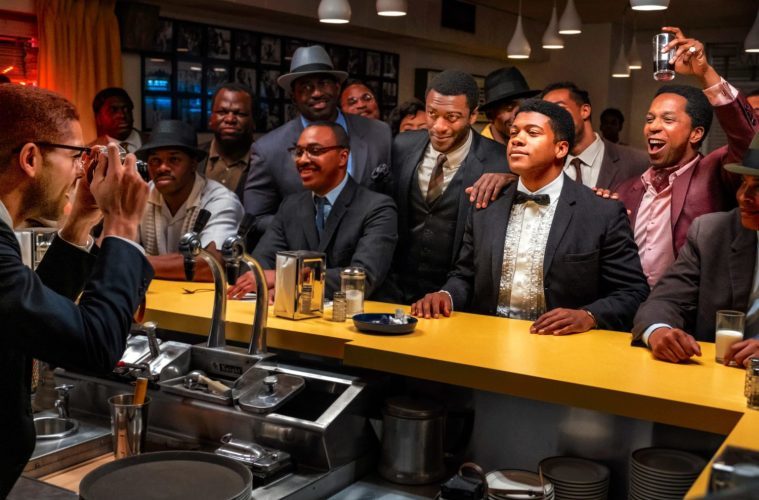Movies with hype invariably owe their success to one of three things:
- Critics whose ideas of “good” and “bad” have been damaged by loads and loads of shitty movies.
- Publicists who are good at their jobs.
- Sheer greatness.
The critically acclaimed drama One Night in Miami – which has a 99 percent fresh score on Rotten Tomatoes and has been hyped up by critics and directors and athletes – is one of those movies that falls into the latter category and it coasts off its greatness, especially story-wise.
On February 25, 1964, a young boxer named Cassius Clay beat Sonny Liston for the world heavyweight championship. Later that night Clay, Nation of Islam leader Malcolm X, pop-singer Sam Cooke and NFL star Jim Brown gathered in a hotel room to celebrate. No one knows what they talked about, but we can assume it had something to do with race, religion, politics, music and why vanilla ice cream is way overrated.
The vanilla ice cream, by the way, is one of the few facts known about the evening that inspired this film – it was offered as a refreshment by the host, Malcolm X, whose religion forbade anything stronger. The rest of Miami is a “what if” scenario, based on Kemp Powers’ one-act play, and dramatized by director Regina King with vibrant, visionary, light-fingered assurance.
The film comes alive once everyone’s gathered at the Hampton House Hotel, the choice getaway for black celebrities at the time, and a place where these men could discuss current issues and how they navigate them. Clay (Eli Goore) is poised to change his name to Muhammad Ali and join the Nation of Islam, just as Malcolm (Kingsley Ben-Adir) is preparing to depart it. Brown (Aldis Hodge) is exploring a career in film. Cooke (Leslie Odom Jr.), fresh from bombing in front of a white audience, is uncertain about his future.
Meanwhile, Malcolm confronts Cooke about his music. Comparing Bob Dylan’s “Blowin’ in the Wind” to Cooke’s “You Send Me,” he attacks the singer for not making songs about the movement, claiming Dylan beat him to it. Malcolm stirs up all kinds of trouble, as Malcolm is known to do, and the four men joke and argue, laugh and fight, relax and debate. Although this is supposed to be a party, they pivot to conversations about the black experience in the mid-20th century, a deeply traumatized history informed by racism, religion, and violence, which is reflected in the set pieces.
The nature of a play committed to film is in some ways claustrophobic, confined by the restraints of time and space. King and cinematographer Tami Reiker create a smooth, richly textured world, the camera gliding laterally as if it were a boxer in the ring. But the characters are still stuck- in the space of the hotel and, in the United States itself. That’s kinda the point.
King, using Powers’ work, crafts an exhilarating rallying cry for all the people who feel stuck in place, waiting for change to come. One Night in Miami is a film that suggests change will come, through its final and hopeful images, and through its very existence.
A movie about black icons starring black icons, written and directed by black icons? With this much hype? Heck, maybe change is already here.
On Amazon Prime and at the Mission Tiki Drive-In, 10798 Ramona Ave, Montclair. missiontiki.com/movies/one-night-in-miami/
Advertising disclosure: We may receive compensation for some of the links in our stories. Thank you for supporting Irvine Weekly and our advertisers.

